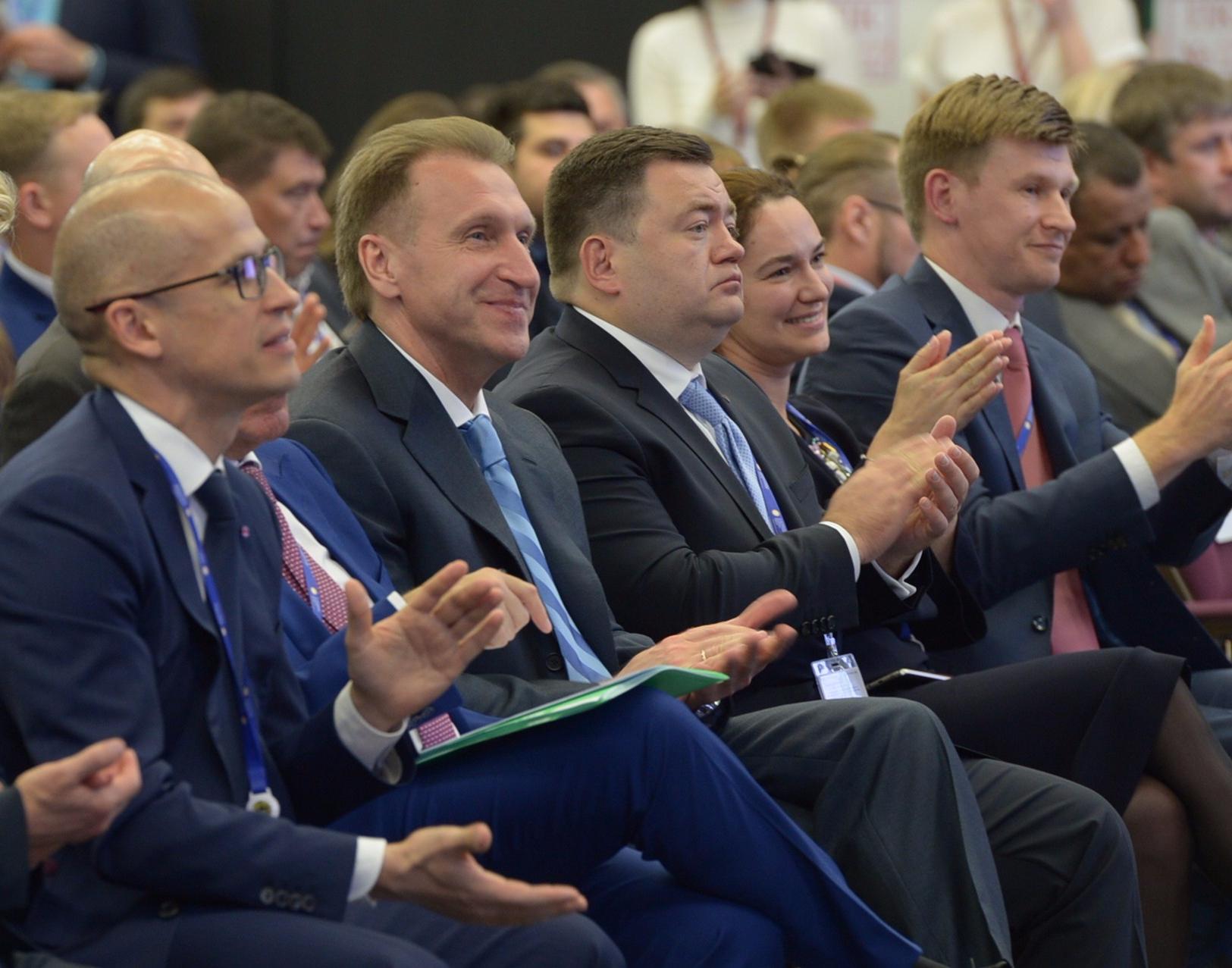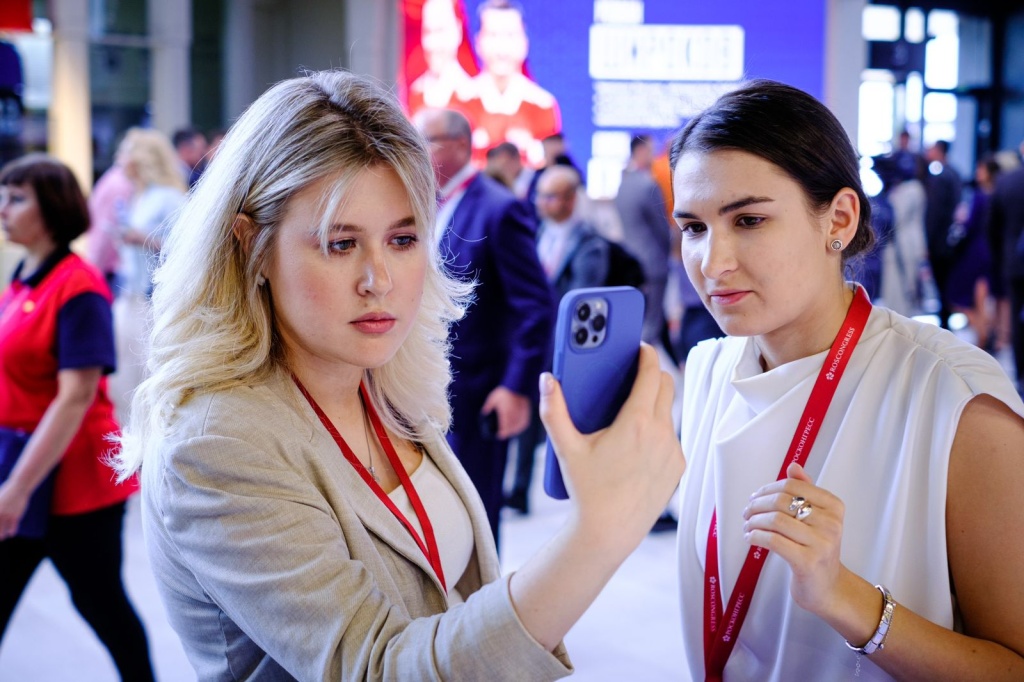
The third Russian Small and Medium-sized Enterprises Forum was held on the eve of the St. Petersburg International Economic Forum
On May 31, 2017, the day prior to launch of the main programme of the 21st St. Petersburg International Economic Forum, the third Russian Small and Medium-sized Enterprises Forum (SME Forum) was held. The event was organized by the Roscongress Foundation and the All-Russian Non-Governmental Organization of Small and Medium-Sized Businesses OPORA Russia.
First Deputy Prime Minister of Russia Igor Shuvalov took part in the Russian Small and Medium-sized Enterprises Forum: “It’s not the first year that we gather on the eve of the St. Petersburg International Economic Forum to discuss the problems of small and medium-sized business.”
The Forum Business Programme consisted of more than ten sessions, including a meeting in the format of a business exercise ‘Ideas, Strategies, and Technologies from Successful Entrepreneurs Development’ of the Russian small and medium enterprise potential was worked through during master classes and roundtables.
At the Master Class on Procurement from SMEs by Major Companies with Partial State Ownership, the session moderator, President of the All-Russian Non-Governmental Organization of Small and Medium-Sized Businesses OPORA Russia Alexander Kalinin noted: “Vast opportunities are being created for qualitative and quantitative growth of the small and medium enterprises that have joined the public corporation procurement system.”
In this context, member of the Board of Directors and CEO of the Federal Corporation for the Development of Small and Medium-Sized Businesses Alexander Braverman expressed the decisive position of small and medium business in the process: “The topic of this session is extremely important. SMEs want to see transparent access to public procurement, which is crucial. This includes several parameters. In the first place, it is the share of purchases from single-source suppliers, that is to say, non-competitive purchasing, which is 2.6 times less in our case. Second, speaking about the intensity and level of competition, according to Federal Law 223, there should be 1.7 tender participants on average and, in our case, there are 2.9. We stand for creating trust: you get the right supplies at a lower price and through a transparent tender.”
A Master Class on Finances for SMEs also took place at the Forum. It was a practical session aimed at establishing cooperation between SMEs and banks that provide them with financial support. A Master Class on the ‘Business Communication in Export Activities’ Course of the Russian Export Center’s Educational Project was organized for Forum participants.
At the panel session entitled ‘Single-Industry Towns: New Opportunities for Business’, approaches to enhancing the investment appeal of regions were discussed and the available opportunities and advantages for business in single-industry towns were demonstrated.
The role of small business under the new policy was discussed at the Panel Session ‘The Role of Microbusinesses in Russia’s Economy – Could Microbusiness Become the Foundation for Future Development?’. “Small business has traditionally been one of the factors driving development of the national economy. In developed economies, small enterprises account for 75–90% of GDP, while in Russia this share does not top the 25% mark. This means that this resource is not used effectively enough and needs to be developed”, said President of the Chamber of Commerce and Industry of the Russian Federation Sergei Katyrin in his welcoming speech. “The new agenda of the state social and economic policy through 2025 is now being formed, a programme for speeding up economic growth and a national development strategy are being prepared. In this context, small enterprises should find their place under the new policy.”
The plenary session ‘Enterprise: It’s in Fashion. How to Stimulate and Develop an Enterprise Culture in Russia: The Example of Digital Technologies’ was a cornerstone event of the Forum. Nowadays, digital technology allows entrepreneurs to focus on business development by providing remote solutions to basic, routine and bureaucratic problems. At the same time, mobile technology helps SMEs enter export markets by competing with major projects and create proprietary digital brands representing the new face of the Russian economy abroad.
The session Speaker, Vice President, Public Policy and Government Relations Europe, Middle East, and Africa, Google, Nicklas Lundblad spoke about the changes induced by digital technology in being introduced into business. “The Russian economy is changing very quickly, becoming digital and actively using mobile applications. Yet technology does not change the essence of business; it creates vast opportunities for implementing all sorts of ideas and, most importantly, provides access to global markets,” – Nicklas Lundblad said. “It is critical to provide maximum support for all those who really want to develop business. That is precisely why Google focuses particularly on such projects as Business Class and we greatly appreciate this opportunity to cooperate with Sberbank. I would like to give separate thanks to First Deputy Prime Minister Igor Shuvalov for supporting our programme.”
The speech First Deputy Prime Minister Igor Shuvalov summarized the results of the multilateral discussion held on the eve of SPIEF 2017: “The Google/Sberbank project was initiated a year ago, when we were talking about setting up a corporation to support small and medium-sized business. This initiative aims at creating a project that, in some years’ time, will result in a trend towards a reduction in poverty. It is good that we are discussing small and medium-sized business on the eve of the St. Petersburg International Economic Forum – this obviously means we are on the right track, for it is important and critical to enhance the value of entrepreneurs and their businesses.”
New networking events for small and medium-sized enterprises were also organized on the sidelines of the Forum: Networking for Russian companies, Open Microphone Presentation of Investment Projects, InvestBazar – pitch sessions for business owners to private investors, funds and banks.
The Forum was attended by over 500 participants representing small and medium-sized enterprises, state authorities, the Russian and foreign business communities and experts, including:
· Presidential Commissioner of the Russian Federation for the Protection of Entrepreneurs’ Rights Boris Titov
· Founder and General Director of Dodo Pizza Fedor Ovchinnikov
· Deputy Director, Licensing, Masha and the Bear Vladimir Valiyev
· Shareholder and former General Director of Get Taxi, Founder of the VVERH Business School Vladimir Marinovich
· Supervisory Board Chairman, Supervisory Board Strategy Committee Chairman and President of Bank Otkrytie Ruben Aganbegyan
· Member of the Board, Senior Vice-President, Director of
· the Small Business Customer Service Department, VTB 24 Nadiya Cherkasova
· Senior Vice President, Sberbank Anatoly Popov
The topic of small and medium-sized enterprises will be continued as part of the SPIEF 2017 Business Programme, including at the sessions ‘The Influence of SME Ecosystems on the Global Economy’, ‘Strategy for Growth’ and ‘Global Demand and Priority Areas for Russian Exports'.








